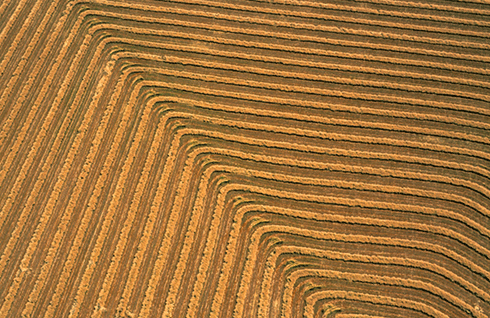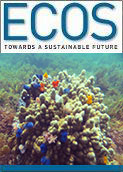
|
Published: 24 February 2014
Australian plant science duo recognised for drought-proof wheat
Two Australian researchers, including a CSIRO Fellow, have won an award regarded as the equivalent of a Nobel Prize for agriculture – the 2014 Rank Prize for crop husbandry and production. The award recognises their pioneering research that led to the development of new wheat varieties able to flourish in dry conditions.

|
|
Getting better wheat yield from Australia’s arid climate was the challenge met by the two Australian researchers who won the 2014 Rank Prize. Credit:
Gregory Heath/scienceimage
|
Former high-school classmates, Dr Richard Richards from CSIRO Plant Industry and Australian National University’s (ANU) Professor Graham Farquhar <, were recently presented with the Rank Prize at a high-profile event in London.
The two were recognised by the Rank Prize Nutrition Fund for their ‘dedication and outstanding contribution to agriculture’ through their pioneering development of Delta Carbon technology, which helps plant breeders more easily identify which varieties use water most efficiently.
‘It's a great honour to receive and share this prize with Graham,’ said Dr Richards.
‘A very notable and rare feature of our work is the coming together of both theoretical and applied research activities to provide improved varieties for farmers.
‘While our discoveries date back to 1984, they are just as relevant today, if not more so, as the world grapples with food security and water shortages.’
The Rank Prize for human and animal nutrition and crop husbandry is awarded every two years. The only other Australian to win it was CSIRO’s Hal Hatch in 1981, for identifying the C4 pathway of photosynthesis.
‘It is excellent recognition of the world-leading plant research happening here in Australia and the global impact of their research,’ Maurice Moloney, Group Executive of CSIRO Food, Health and Life Science Industries, said.
‘The Rank is one of the most prestigious prizes in agriculture. The competition is very high and only excellent science with proven impact is considered.’
The technique developed by Prof. Farquhar and Dr Richards led to the emergence of new commercial wheat varieties that grew 10 per cent more than conventional varieties with the same amount of water. This meant a 10 per cent, or more, increase in yield in the driest conditions.
Delta Carbon technology can also be applied to other crops – it’s already been used with rice, barley and chickpea – to identify varieties that use water more efficiently during their growth, a critical tool in helping humanity navigate a world of changing climates and uncertain food security.
Source: CSIRO



